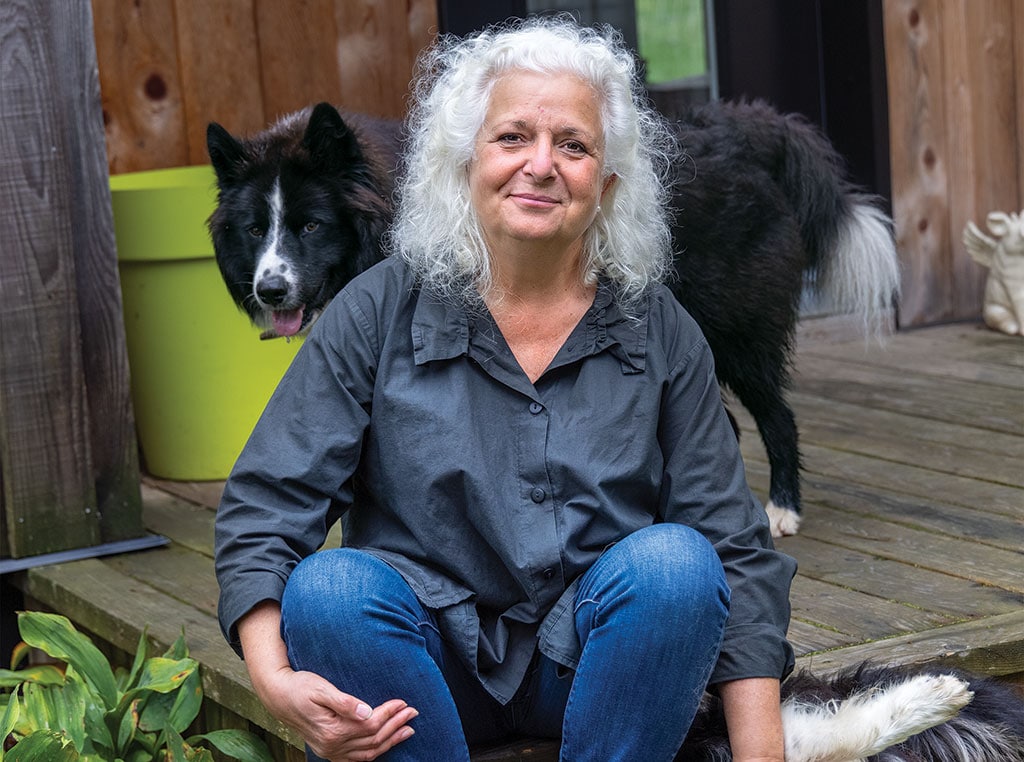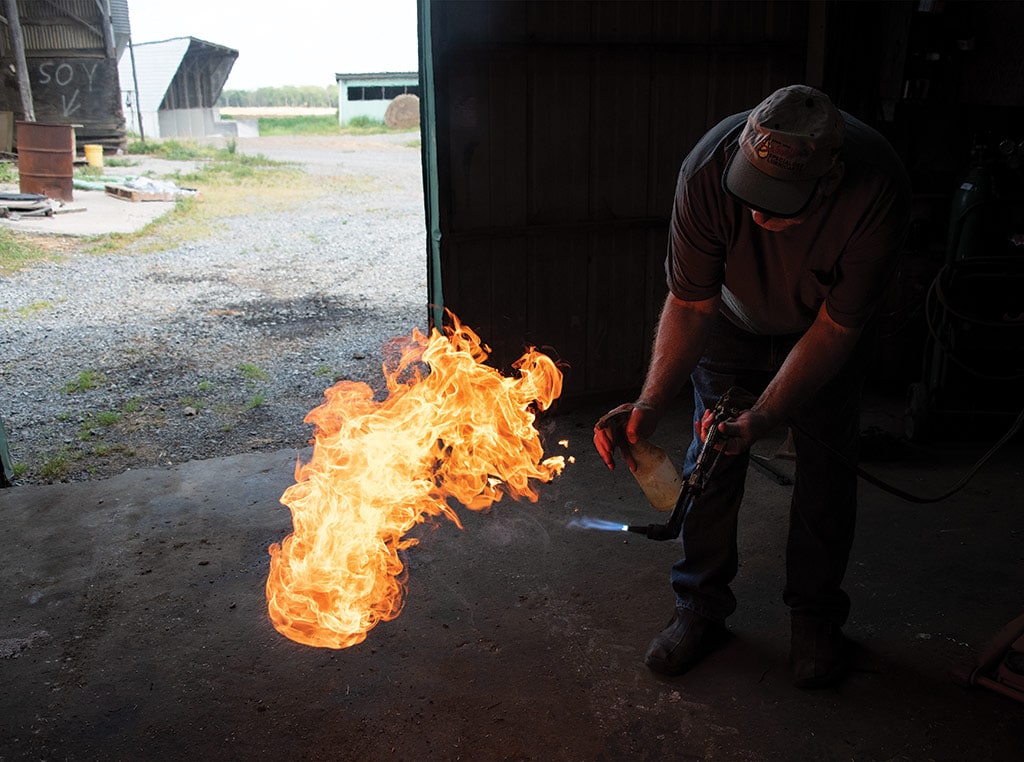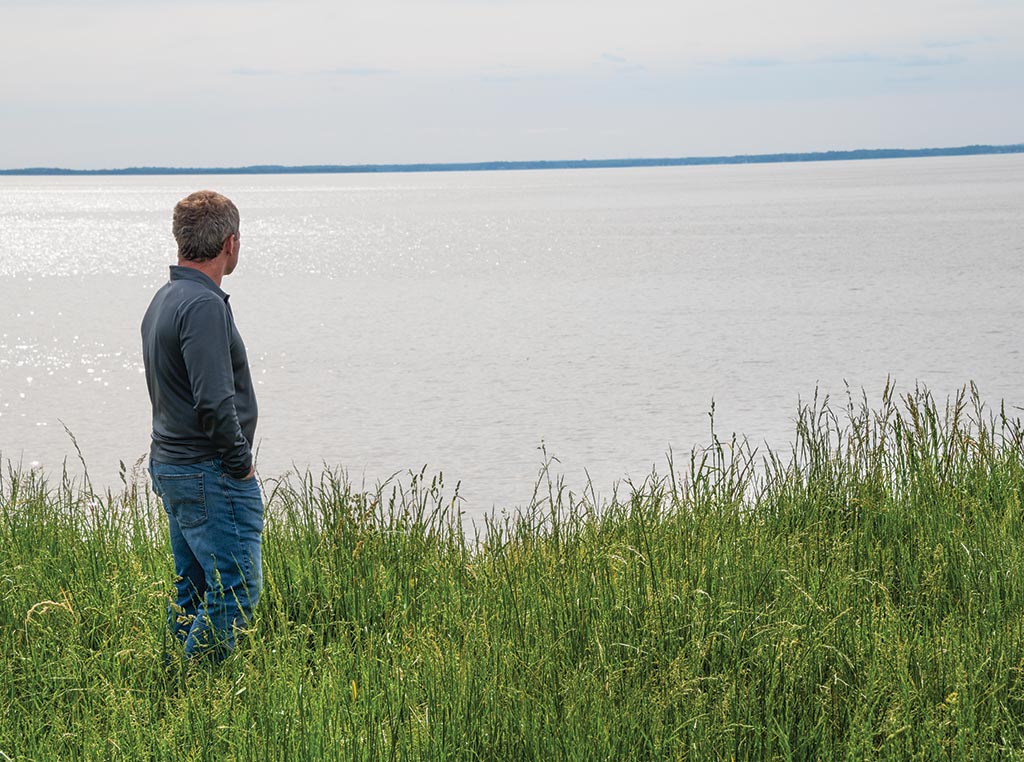Agriculture, Education February 01, 2022
Tinker Tailor Farmer
Tinkering keeps the fun in farming.
Glenn Rodes says he’s not the only idea man on the Virginia family farm, but he is the crazy idea man.
“I’m a chronic tinkerer,” he says. The result is a turkey house with radiant floor heat powered by an alternative energy burner and various engines running on homemade biodiesel. “I like interesting things, particularly in the alternative energy field.”
Rodes works the Port Republic farm with his brothers, Nelson and Allen, and nephews, Gary, Justin, Adam and Brady.
Cradled in the Shenandoah Valley, they raise beef cattle, corn, soybeans, canola, barley, wheat and alfalfa hay; run a custom silage harvest business, four turkey houses, and, until spring 2021, a 225-head dairy.
They retired the dairy because the next generation lacked interest. Regardless, Rodes is keenly aware all agricultural enterprises run on tight margins and are too often teetering on the edge.
Diversity helps buffer against risk, as does widening margins. Rodes’ side projects serve to elbow a sliver more room in margins.
Above. Crushing oilseed crops, making biodiesel, burning chicken litter, even developing an industrial hemp market are challenges Glenn Rodes tackles with enthusiasm. They’re far safer hobbies than the gyro copters and motorcycles of his youth.
Flex fuel. Rodes’ fascination with fuel likely is rooted in the fact that their farm is a high energy consumer. There are brooder houses, irrigation pumps and high horsepower choppers to fuel.
In 2003, he fitted a new brooder house with radiant floor heat. Upfront costs were significant, but the system kept litter dry, reducing humidity, put heat near the birds and reduced ventilation needs. All resulted in less energy used.
Biomass burners running first on $3 corn, then wood chips and, now, poultry litter fuel the system.
“It takes something we have too much of—poultry litter—makes it a fuel source and produces bio-char, which I hope to use as another income stream,” Rodes says.
Homemade biodiesel is a favorite project. In 2010, he purchased a screw press to crush soybeans and canola. The resulting vegetable oil was blended with diesel and used in older engines.
Rodes had to tinker a bit more, so he added a biodiesel processor. Now he crushes seed producing oil and high protein pressed cake used for livestock feed. Oil is processed with methanol and sodium hydroxide (lye) to create biodiesel.
“It’s really a simple process, though maintaining press wear parts is a dark art,” Rodes laughs. “We make about 6,000 gallons of biodiesel per year.” His nephew, Justin, helps.
“I think it’s interesting,” Justin says. “It’s really satisfying pouring this golden, yellow biodiesel we grew and made into farm equipment that will work the same land. Plus, the exhaust smells like fried chicken.”
One more round of tinkering and Rodes was able to distill the waste product, dividing the glycerin and methanol. Glycerin is added to cattle feed and the methanol reused. It’s a satisfyingly closed loop, he says.
Up next. Industrial hemp is the current idea Rodes is tackling. This project will require tinkering with growing, processing and legislation. Headway is slow and brings interesting farm chores. His family had to be fingerprinted at the county jail for the first crops they grew. But, it’s worth it.
“My ideas can’t make us fully self sufficient, but they increase our efficiency,” Rodes says. “My energy ventures are mostly a hobby, a fun thing to do to keep life interesting. My family, to this point, has tolerated me pretty well.” ‡
Read More

AGRICULTURE, LIVESTOCK/POULTRY
Never Too Late
Couple reinvents their life in their 40s.





